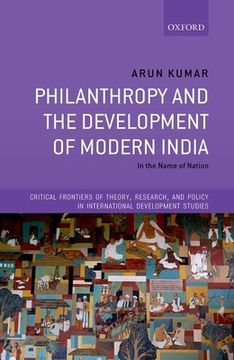Share
Philanthropy and the Development of Modern India: In the Name of Nation (Critical Frontiers of Theory, Research, and Policy in International Development Studies) (in English)
Arun Kumar
(Author)
·
Oxford University Press, USA
· Hardcover
Philanthropy and the Development of Modern India: In the Name of Nation (Critical Frontiers of Theory, Research, and Policy in International Development Studies) (in English) - Kumar, Arun
$ 97.71
$ 122.14
You save: $ 24.43
Choose the list to add your product or create one New List
✓ Product added successfully to the Wishlist.
Go to My WishlistsIt will be shipped from our warehouse between
Tuesday, June 11 and
Wednesday, June 12.
You will receive it anywhere in United States between 1 and 3 business days after shipment.
Synopsis "Philanthropy and the Development of Modern India: In the Name of Nation (Critical Frontiers of Theory, Research, and Policy in International Development Studies) (in English)"
Drawing on the history of the philanthropy of India's economic elites, Arun Kumar discusses how their ideas and understanding of development have shifted and changed over time. Going beyond the more familiar criticisms of development's entanglements with colonialism, Kumar interrogates thechanges in development imaginaries in terms of modernity's entanglements with the national question, including anti-colonial nationalism and post-colonial nation-building during the twentieth century. Development, he suggests, can be usefully read and critiqued as national-modern. Philanthropy andthe Development of Modern India plots the careers of the national-modern in four main sites of development: civil society, community, science and technology, and selfhood. In an unusual move reading socio-economic nationalist reform from the first half of the twentieth century alongsidepost-colonial development from the second half, Kumar uncovers the lineages of contemporary development ideas such as self-care, self-reliance, merit, etc. In all this, elites were driven by a 'pedagogic reflex': to teach different sections of Indian society of how to be modern and developed.Contrary to development studies' characterization of elites as anti-development or captors of scarce resources, Kumar shows how elites longed for development for others. Development provided the moral justification, in their calculations, for protecting their commercial interests as they navigatedthe turbulent Indian twentieth century.

